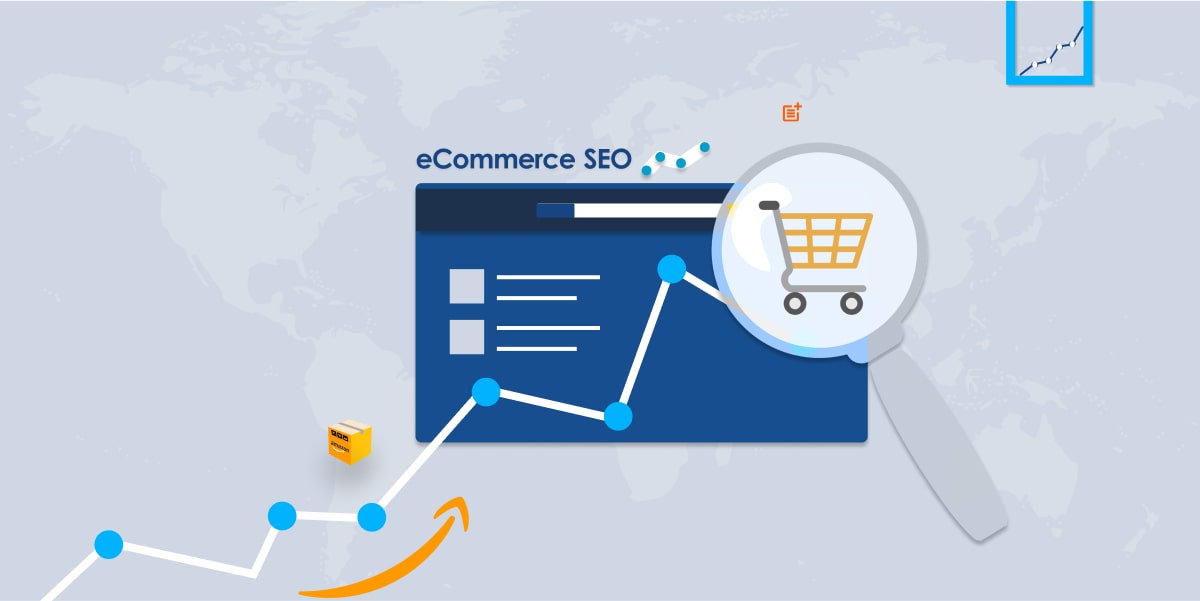
SEO is important for eCommerce because it guarantees more traffic to your website, translating to more sales for you. If your website does not come up on searches, more people will not see what products you have, and it will be difficult for you to get more sales. In this post, we will review the best eCommerce platform for SEO.
For SEO to work well, you need to ensure that you have optimized it well so that your website can appear in searches when a person is looking for a particular product. With so many platforms available, it might be challenging to choose the right one for your website.
The following are the best platforms for SEO and their features to guide you so that you can choose the ideal one for your website:
BigCommerce
This is one of the best platforms that you can use for SEO. If you have a larger retail brand, it will support you well, and you can also use it if your site is a beginner.
A startup eCommerce store will benefit from the several features it offers, and it is expandable so that you can also help and you do not have to change if your eCommerce store grows larger.
This platform supports every niche and industry and guarantees success to many websites. Here are some of the features that stand out when dealing with this bigCommerce.
- It Is Good When Dealing With Multichannel Selling
- The SEO Performance Is Strong
- It Is Flexible & Scalable
- It Supports One-Click Selling
- Easy To Use, Therefore Ideal For Beginners
- Several Amazing Theme Designs
Cons of this platform:
- Inconsistent Speeds
- High Volume Clients Will Pay More For The Platform
- The Cart Abandonment Feature Is Not Available On The Entry Plan
Shopify
This is probably one of the most common platforms for selling available for people who plan to dropship. It relies on social media sites like Instagram and Facebook for marketing, making it the best choice for users who use them for marketing their products.
Shopify ideal for people who are not planning to use SEO for a large eCommerce store. The platform is easy to learn, and beginners can get the hang of using it in a few minutes, and they can set it up without any help, even if they are not tech-savvy.
It allows payments via mobile apps and has many apps that will support the user and make it easier for them to sell through the internet. The following are the pros and cons of using this platform for eCommerce:
Pros:
- Faster Loading Time
- It Is Very Easy To Set Up
- It Has A Lot Of Partners & Apps That Support The Users
- Supports One-Click Selling
- It Allows The User To Use Multiple Channels & Social Selling
- Has A Variety Of Themes, Designs And Settings
Cons:
- It Rates Poorly When It Comes To SEO
- The Customers Will Not Be Able To Customize Their Checkouts
- It Needs The Help Of A Developer For The Advanced Features
Wix
The Wix eCommerce website builder is ideal for solo entrepreneurs and supports beginners in the eCommerce business. For people with smaller eCommerce businesses, this is one of the best platforms to use, and it is also beginner-friendly because it is easy to use. It supports drop shipping and has an abandoned cart recovery and a print-on-demand ability.
They offer multichannel integration and continue to evolve over the years to make it possible for the users to have a better chance with all the apps and needs they want it to help them with. Here are the pros and cons of the platform:
Pros:
- Has Several Free & Amazing Themes For Use
- It Is Simple & Easy To Set Up
- It Comes With Marketing Automation Included In It
- It Has On-Page Support For Many Of The Website Needs
Cons:
- It Still Tests Poorly When It Comes To SEO
- The Sites Might Not Be Secured
- It Does Not Have Upselling Features & The Template Is Not Easy To Fully Customize
Shift4Shop
With no transaction fees needed, this platform has become popular with many eCommerce businesses. It has several practical features like unlimited storage that will help stores with many products and those with many varieties that they are selling.
Shift4Shop serves businesses with a huge clientele and supports multichannel selling so that it is easy for anyone to use it and sell several products on their websites simultaneously. You will also get support when you need to use it, and it comes with several great management tools. These are the pros and cons of this platform:
Pros:
- It Has A Better Blog Feature Than Many Other Platforms Like Shopify
- Easy To Install & Use
- It Supports Any Integration You May Need For Your Website
- Comes With Management Tools Like Email, Quickbooks, Inventory & Many More
Cons:
- The Templates Are A Bit Dated & Are Not Cutting Edge
- Upgrading Is Not Easy
- It Is Not Beginner-Friendly
WooCommerce
This platform works with word press so that the user can have a chance to run the eCommerce and also an affiliate under the same website.
WooCommerce comes with extensions so that it is easy to integrate payment getaways, email marketing, social media, shipping, and 1-click selling.
The features make it a functional platform that benefits many people in eCommerce, and it has ranked higher because it accommodates most people and businesses. It may not be easy to host, but it is one of the best for SEO. The following are its advantages and disadvantages:
Pros:
- It Uses WordPress Which Is The Best Platform For SEO
- It Has A One-Click Selling App
- It Is Functional & Highly Customizable
- It Has Many Marketing Options & Supports Many Other Integrations
Cons:
- It Can Be Pricey, Especially For Beginners
- It Needs Extensions Even For Simple Things
- It Does Not Have Support And Is Difficult To Troubleshoot
Volusion
This platform is ideal if you are selling a physical product because it does not support automatic digital downloads after payments. It has 11 free themes, and many of them are premium and do not have any hefty extra costs that many other platforms provide for free.
The website builder is easy to set up and use with in-page editing and drag–and–drop features. You will also get blogging capabilities, and you can use it with word press so that you will not need to connect the blog to your store. Here are some of its major pros and cons:
Pros:
- It Has Built-In Subscriptions & Recurring Payments
- It Comes With Excellent Onboarding And Help Centre
- It Is Flexible With Sitemaps
- The Platform Is SMB Friendly
- The Marketing & Inventory Systems Are Clear
- The Dashboard Has Been Well Laid Out
Cons:
- It Does Not Have Cross-Selling Features
- The URL Structures Are Not Very Stable
- It Does Not Have A Built-In Blogging Functionality
Weebly
This platform has over 40 million customers because it is simple and has marketing automation built into the design. It has focused on eCommerce, making it ideal for people with businesses, and is an excellent choice for startup entrepreneurs. You will not have to hire a developer when using this platform, and it has a higher score than many others. It has several free and premium themes, and you can customize your templa6ttes easily.
The platform also has a drag and drop editing tool and gives you the option of using HTMKL and CSS for customization.
Pros:
- It Is Easy To Use And Comes With A Simple Dashboard
- Has A Mobile App
- It Has Powerful Email Tools
- The Costs Are Low & It Comes With Free Designs
- Has An Excellent Value
Cons:
- Has Additional Charges & Also Incurs A Transaction Fee
- Their Inventory Management Is Still Basic
Squarespace
This is a platform that many people who are serious about SEO for eCommerce need to consider because it is very solid in SEO. It comes with sleek templates and also has a drag and drop editing features with excellent design capabilities.
The platform is great for beginners because it is easy to use and has lower prices, and you can choose to be billed annually, which is more cost-effective. It also allows you to get abandoned cart recovery, give out gift cards, give flexible discounts and sell subscriptions. Here are the pros and cons of the website builder:
Pros:
- It Is Great For Simple Stores
- It Is Simple & Easy To Use
- Its SEO Tools Are Solid
- The Designs Are Stunning
- It Integrates With Ship Bob & Ship Station
Cons:
- It Does Not Support Drop Shipping
- The Features And Functionalities Do Not Have An App Store
- It Is Not Very Fast
Important factors to consider when choosing the best platform for eCommerce
Several features are important when you are considering the best platform for SEO. It would help if you were sure about what you are choosing so that your website will be fully optimized and you can use it well to do your marketing. The following are factors you need to consider
Independent Navigation Links
This is the text that will appear for your products and the categories on the menu for your website. If you are using SEO, you need to ensure that the product categories in your inline store will have independent navigation links
Independent Page Titles
This is the text that will appear on the tab section on top of the browser and is also shown when a person bookmarks the page or saves it as a shortcut. For strong SEO, the titles that include the search term or the keyword will be in the beginning of the page title.
Independent Page URLs
The page URLs are shown in the address bar of the browser and the key word terms have an SEO advantage. It is preferable that the URLs are independent and they will hurt the rankings if they are too long or irrelevant.
Independent Meta Descriptions
This is the description that appears under your listing title in Google results. It may not directly impact the position of your search results but it needs to have an impact so that your visitors will click your listings instead of that if your competitors. This description will determine the ranking of your site.
These and many other features will help you have a website that will rank higher for SEO purposes. You may have to look further to get any other additional extensions but with the right platform, you can customize your website for any kind of business that you may have. Sunken Stone will help you with any help you may need to choose the right platform for SEO purposes.

